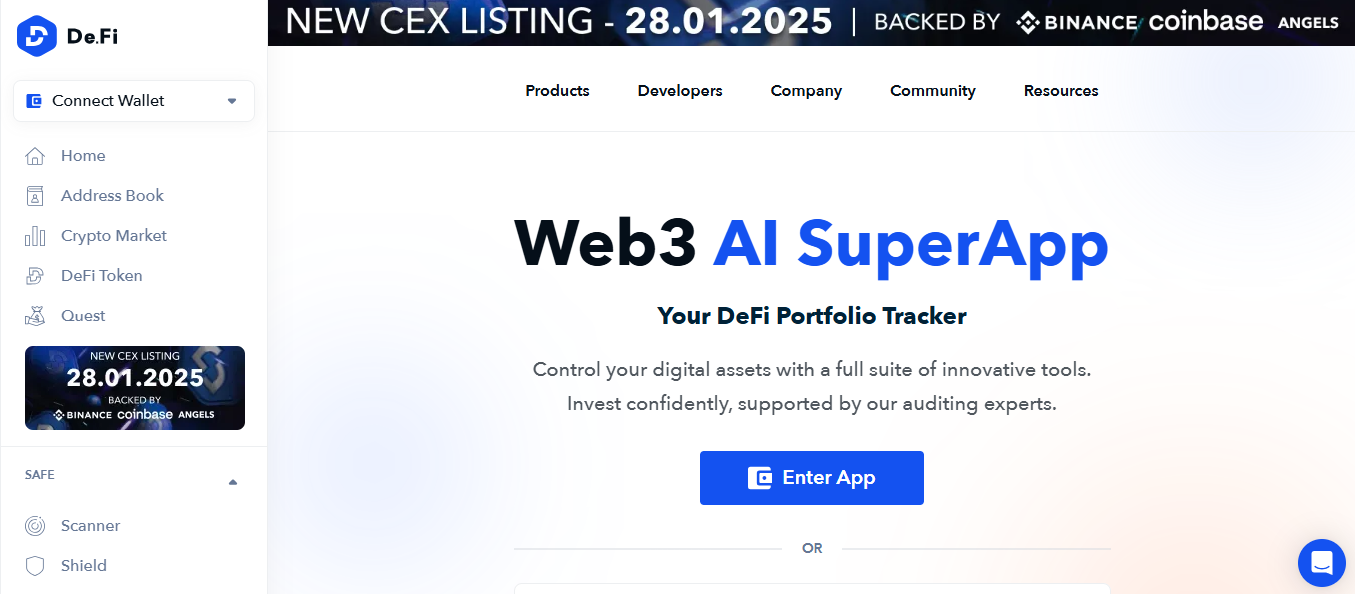Investing in cryptocurrencies continues to gain momentum globally, with more people praising their potential to reshape future financial systems. From blockchain technology breakthroughs to widespread use cases, digital assets offer a cutting-edge space for those seeking innovation and profitable returns. Though not without risks, crypto’s decentralized nature and global accessibility can complement a well-balanced investment strategy in ways traditional investments might not.
In this post, we’re going to give you 10 reasons why you should invest in cryptocurrency. These reasons are based on some of the core features of crypto, like cross-border transactions, smart contracts, and alternative ways of storing value. Whether you’re a new investor or looking for a spark to stay motivated, these reasons can help clarify why now might be an opportune time to explore crypto investing.
10 Reasons Why You Should Invest in Cryptocurrency
1. Potential for High Returns
The crypto market is known for explosive price growth. Bitcoin, for example, rocketed from mere pennies to tens of thousands of dollars, generating substantial gains for early adopters. While not every digital coin follows the same path, this volatility can create rapid price surges over shorter periods than typical stock market cycles. Real-life stories abound of investors multiplying small holdings into life-changing amounts, highlighting the potential of a crypto investment to significantly beat traditional markets on high returns.
2. Portfolio Diversification
Cryptocurrencies don’t always correlate with legacy assets like stocks or bonds, offering alternative movements in your portfolio. For instance, retail investors who allocated a modest portion of their funds to Bitcoin over the past decade often enjoyed uncorrelated returns. A diverse portfolio can cushion unexpected downturns and harness varying market cycles.
3. Decentralized control
Unlike stocks where a central authority or governing body may heavily influence market dynamics, cryptocurrencies rely on decentralized networks maintained by global participants. No single entity controls supply, and upgrades rely on communal consensus. An example is how Ethereum’s community-driven proposals can reshape how the network operates without a company board’s directive. By cutting out intermediaries, decentralization can empower individuals with complete control over their digital money, free from many traditional gatekeepers.
4. Earning Passive Income
Investing in cryptocurrency can unlock avenues for passive income such as staking, yield farming, or liquidity provision in decentralized finance platforms. For example, holding certain tokens allows you to earn rewards for validating transactions or supporting the network. This can range from typical Proof-of-Stake coins like Cardano to advanced yield-farming strategies on DEX protocols. Unlike traditional dividend stocks that sometimes pay modest returns, crypto staking can yield competitive percentages, often compounding your investment.

5. Accessibility
As long as you have an internet connection and a crypto wallet, you can buy, sell, or transfer digital assets from virtually anywhere. This contrasts with traditional investment accounts that might demand specific bank relationships, local brokers, or in-person paperwork. Even in regions with unstable financial systems, people can access major stablecoins or other cryptocurrencies as a store of value. This borderless design opens more people to financial participation and fosters broader global innovation.
6. Lower fees for international transactions
Cross-border payments using crypto often come with lower fees than bank wires or money transfer services. For instance, sending Bitcoin or stablecoins can bypass multiple intermediaries and currency conversion costs. Small businesses operating internationally can potentially save on overhead by accepting Bitcoin or stablecoins. Although network congestion might raise fees during peak times, many cryptos still undercut traditional remittance providers, enabling simpler and cheaper international transactions for personal or commercial use.
7. Blockchain technology
Cryptocurrencies like Ethereum combine blockchain technology with smart contracts to support decentralized apps. Beyond mere digital currency, these networks power gaming ecosystems, supply chain solutions, and more. Walmart has tested blockchain-based tracing for produce, cutting product recall times dramatically. By investing in crypto, you stake a claim in next-gen tech that merges cryptography and distributed ledgers, potentially setting the stage for future leaps in data management, finance, and online services.
8. Future use in daily life
Crypto coins are moving beyond speculation. Some retailers now allow customers to send money in crypto or use it as a payment method, such as purchasing gift cards on major e-commerce sites. Enthusiasts predict that internet-connected devices, like smart cars, could one day transact automatically in crypto for tolls or services. While mainstream acceptance varies, ongoing pilot programs and brand partnerships confirm the rising likelihood that digital assets will power future daily transactions.
9. Decentralized Finance (DeFi)
DeFi applications on Ethereum, Binance Smart Chain, or other platforms unlock new ways to save, borrow, or trade without a central authority. Instead of waiting days for a bank to process a loan, DeFi users can pledge crypto collateral and access funds within minutes. Services like decentralized exchanges are open 24/7, letting you trade outside typical stock hours.

Source: De.Fi
10. Innovation and Future Potential
The pace of crypto innovation outstrips many traditional industries. Beyond established coins like Ethereum, hundreds of projects test concepts in smart contracts, privacy, or cross-chain compatibility. Major financial institutions increasingly engage with blockchain solutions for settlements and compliance. By entering the market now, investors can ride potential future waves of widespread crypto adoption and emerging altcoins.
What are The Risks of Investing in Cryptocurrency?
- High Volatility: Sharp price swings can lead to substantial gains or heavy losses in a short period.
- Security Concerns: Cyberattacks and scams target investors lacking proper security features or safe wallets.
- Regulatory Uncertainty: Laws and policies around crypto vary widely, and changes can impact market confidence.
- Market Manipulation: Low-liquidity coins or certain whales can influence price, leading to potential pump-and-dumps.
- No Guarantees: Unlike insured bank deposits, crypto lacks FDIC support, meaning you may lose your entire investment if markets crash.
How do I invest in cryptocurrency?
- Choose a Cryptocurrency Exchange: Research reputable crypto exchanges for good liquidity, security, and fee structures.
- Open an Account: Complete know-your-customer identity verification to deposit fiat legal tender like USD or EUR.
- Fund Your Account: Transfer money from your bank account, credit card, or other payment methods.
- Pick a Crypto: Center your cryptocurrency investing around high-profile coins like Bitcoin or Ethereum, or explore smaller altcoins in the wider cryptocurrency market after proper research.
- Execute the Trade: Place a market or limit order to buy at your desired price, then confirm the transaction.
- Secure Your Assets: Transfer holdings to a secure wallet, either hardware or software, to maintain control over your private keys.
If you’re looking for platforms that support leveraged trading, check out our Best Crypto Margin Trading Exchanges in 2025 guide to compare the top options.
Conclusion
Cryptocurrencies offer opportunities for portfolio diversification, cutting-edge use cases, and potential high returns. That said, this market also poses unique risks, from price volatility to hacking attempts.
By understanding why you should invest, and balancing them against the potential downsides and drawbacks, you can approach crypto coin investment with greater confidence. Thorough research, dollar cost averaging, and proper security measures play crucial roles in crafting a successful and sustainable long-term approach.
FAQs
Why is cryptocurrency a good investment?
Crypto blends high growth potential, decentralized network benefits, and blockchain innovation. It offers uncorrelated returns vs. stocks, enticing many investors seeking diversification.
Is investing in cryptocurrency safe?
Safety depends on your security practices and risk management. Choose reputable exchanges, store assets in a secure wallet, and remain mindful of volatility and scams.
What is the best crypto to invest in?
Many investors trust established coins like Bitcoin or Ethereum. Others seek future potential cryptocurrencies, or even NFTs, but always weigh fundamentals and your personal risk tolerance.
Can I make money investing in cryptocurrency?
Yes, many have profited through price appreciation, trading, or staking. Yet returns are never guaranteed, so consider the volatility of your entire investment and do your research.















